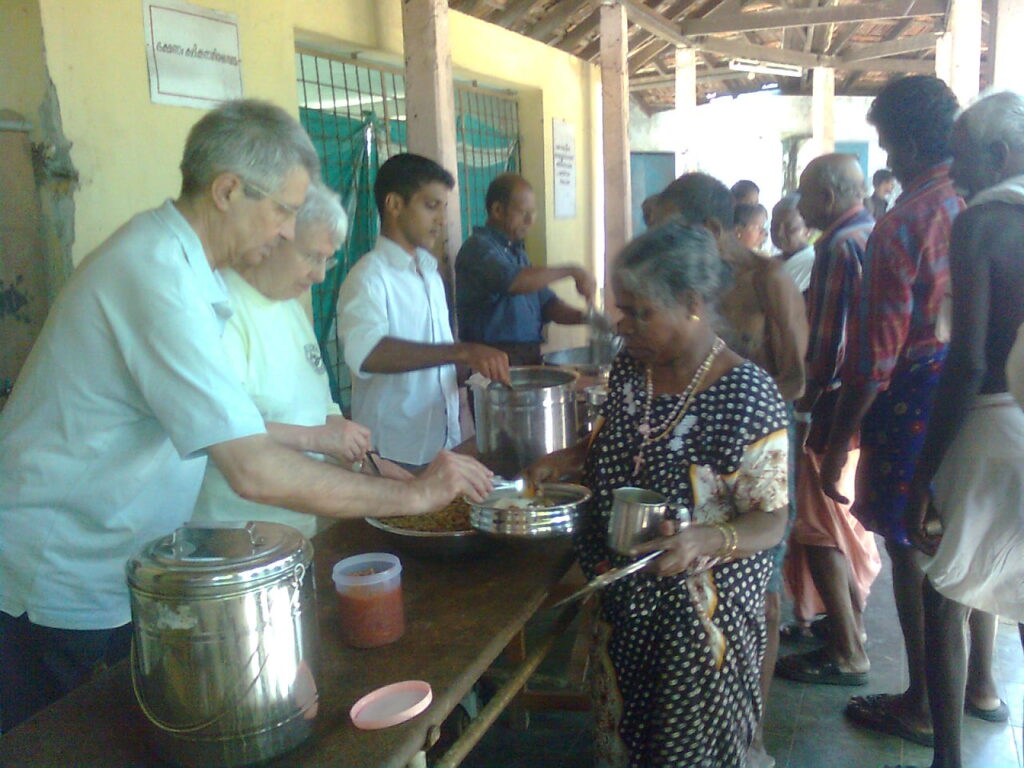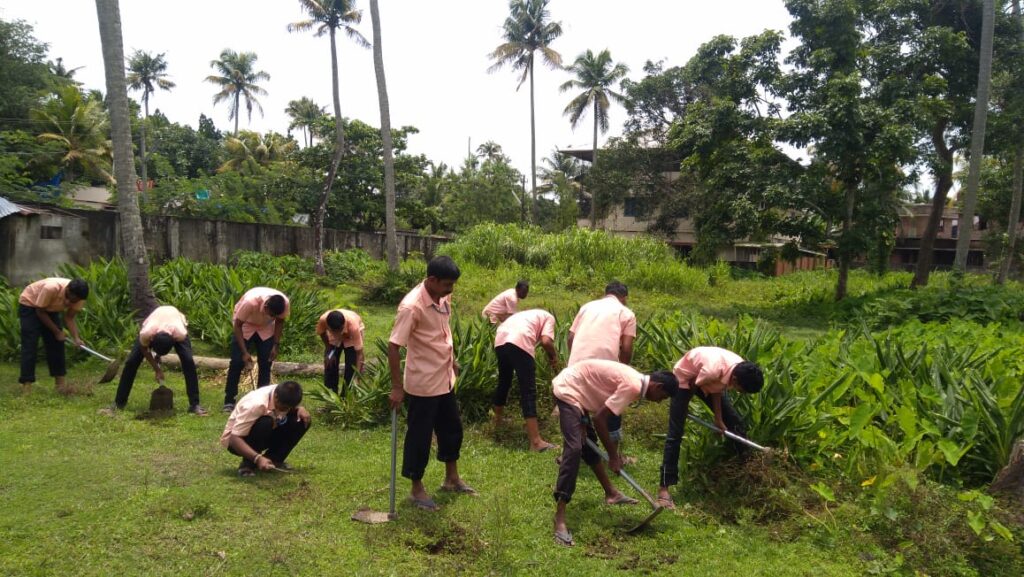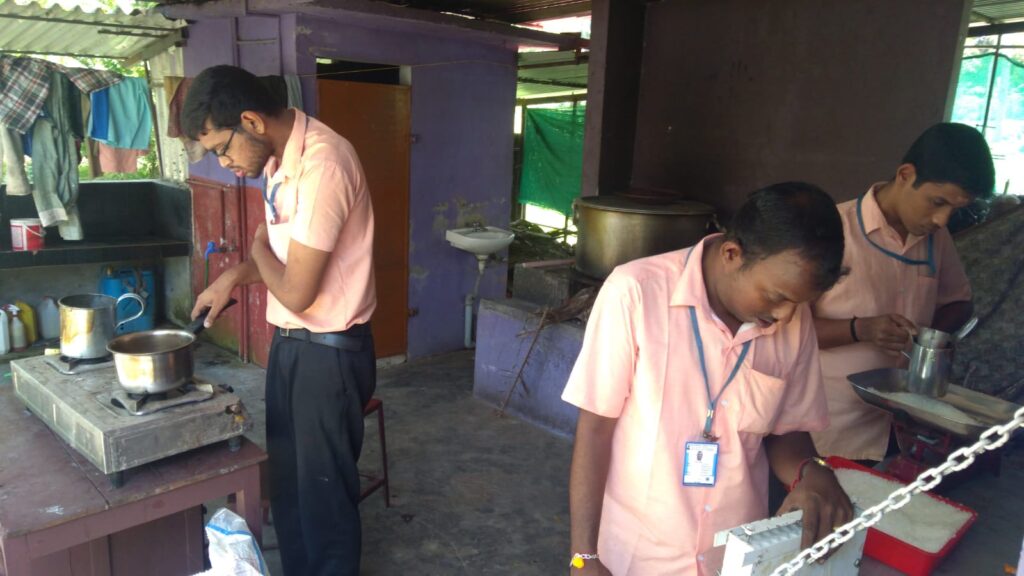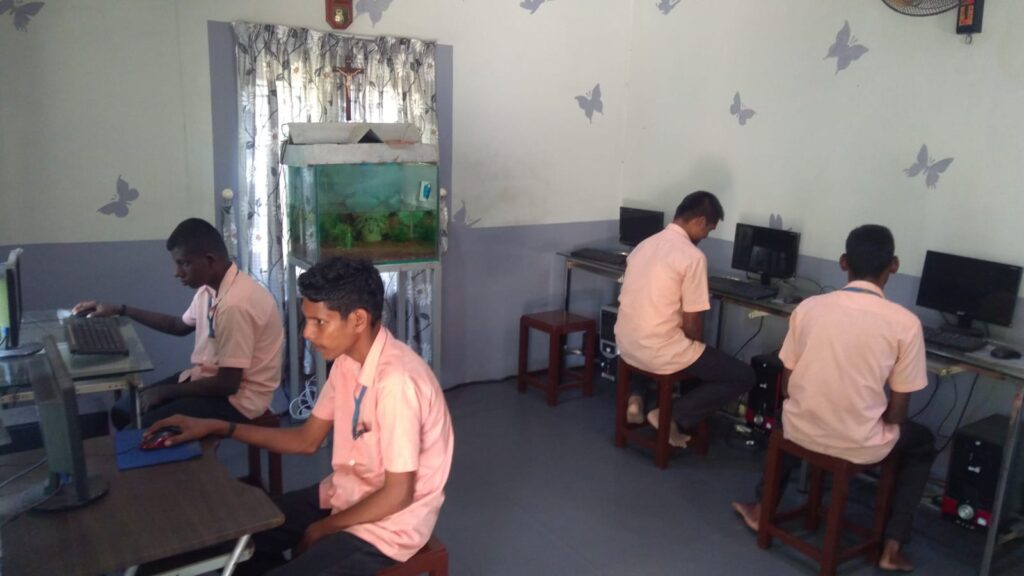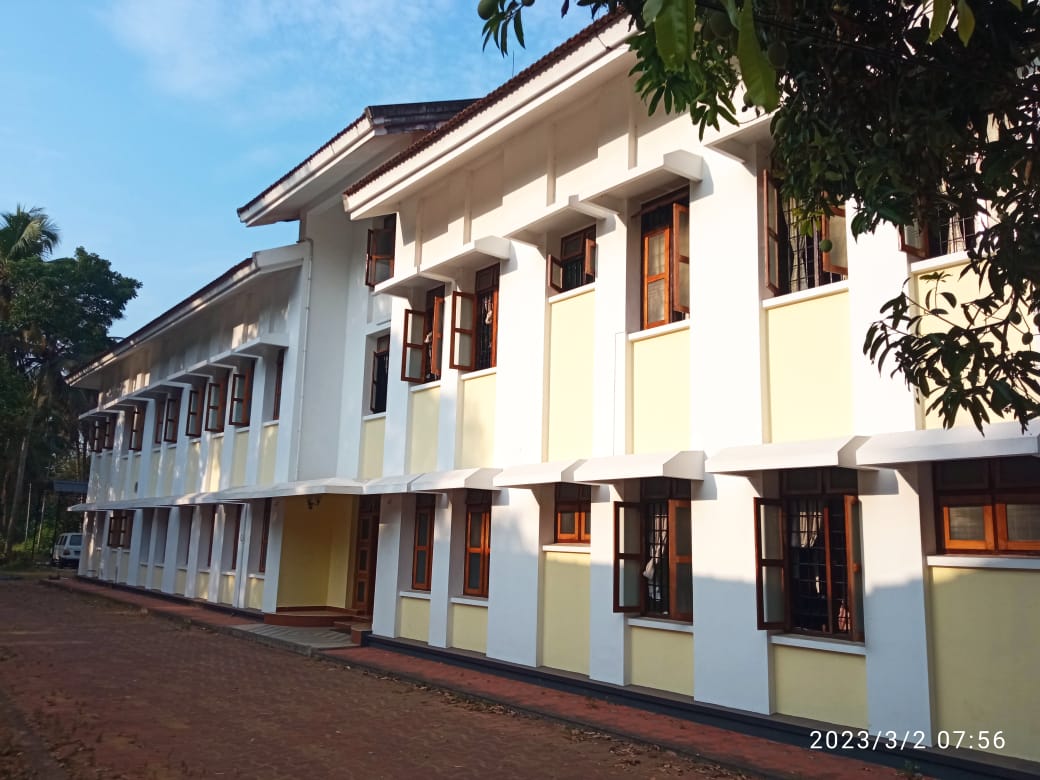SOCIETY OF PRIESTS OF SAINT JOSEPH BENEDICT COTTOLENGO
A UNIVERSAL PERSPECTIVE
St. Joseph Benedict Cottolengo, was a priest of the archdiocese of Turin, in Italy. He was born in Bra (Piedmont) on May 3, 1786, to Joseph Antony Cottolengo and Benedetta Chiarotti, in a middle-class family that transmitted him a deep religious education. On 8th June 1811, in the Church of Turin Metropolitan seminary, by the hands of Mons. Paolo Giuseppe Solaro, he received priestly ordination. Cottolengo began his priestly ministry at Bra, as vicar parish priest at Corneliano d’Alba and in 1816, he was awarded doctorate in theology from the faculty of theology at Royal University, Turin. In 1818, he became Canon in Corpus Domini Church in Turin.
The turning point of his life took place on September 2, 1827. In the evening of that day, he was called to assist Joan Mary Gonnet, a pregnant mother affected by unknown disease and was refused assistance in any hospital of the Turin. Joseph Cottolengo could not do anything else than administering the sacraments to the dying mother and the new-born baby. Joseph Cottolengo was deeply affected by the tragic event and knelt in prayer before the picture of Virgin Mary, Our Lady of Graces, in the Church of Corpus Domini, and felt himself called by Divine Providence to give birth to a charitable institution for the poor, following the example of St. Vincent de Paul. Guided by Divine grace, Joseph Cottolengo on January 17, 1828, with the help of volunteers and benefactors, opened a ward for the sick people of Corpus Domini, called “Red Vault”, where people refused by hospitals were housed and helped. In summer 1830, he founded a community of sisters. Unfortunately, in September 1831, after a cholera epidemic, the “Red Vault” was closed by public authority. But it was a providential event that prepared the road leading to the full realization of the Cottolengo’s charismatic project. On April 27, 1832, Joseph Cottolengo and his community moved to a suburban area of Turin, where since then, the Little House of Divine Providence has been and still is working, under the patronage of St. Vincent de Paul. Towards the end of the year 1833, he started a community of Brothers and in 1839, a community of priests. During the years 1840-41, he founded some monasteries of contemplative life too.
He died in Chieri, near to Turin, on April 30, 1842. Pope Benedict XV proclaimed him “Blessed” and the solemn beatification ceremony took place in Rome the 29th April 1917. The solemn canonization of Joseph Cottolengo was decreed by Pope Pius XI through the bull “Benignissimus Deus” on 19th March 1934.
Charism, Apostolate and Spirituality
The charism of Cottolengo is a living experience of the Spirit of charity, which spreads throughout the life of St. Joseph Cottolengo. The core of Cottolengo charism is to serve God in the person of the poor, our brothers in Jesus Christ; to prefer the most in need; to spend ourselves for their physical and spiritual good with love, solicitude and spirit of sacrifice. The heart of Cottolengo charitable apostolic action is that sees the face of Christ in the neighbour. St. Joseph Cottolengo took care of the sick and looked after the poor and abandoned persons and started Little House of Divine Providence in which family atmosphere was created, so that their dignity was recognized. For this mission he founded communities of sisters, brothers and priests.
The principle of contemplative life of Cottolengo is to live for God alone, with mind and heart occupied as much as possible by God or by things concerning health of the soul. The contemplative dimension of Cottolengo charism is an experience of adoration and continuous prayer, day and night, for all the Church, for the good of Little House and a charitable service to our poor brothers, in an atmosphere of silence, solitude and joyful penance, protected by the enclosure, with manual labour and the study of the Sacred Scripture.
Faithful to the charismatic project of the founder, the Holy See approved later, distinctly Sisters, Brothers and Priests and recognized the Little House represented by Father and by the board of Directors of the Little House of Divine Providence. The poor are the reason of existence of three institutes of Consecrated Life in the Little House and of their unity in spite of the difference of their ministries.
Distinctive features of Cottolengo spirituality are: abandonment to Divine Providence, love of Christ impels us, detachment from the whole creation, deep communion with God, living in his presence, joyful gratitude expressed through Deo gratias, contemplation of the mystery of the cross and hope in paradise.
Founding and Growth of the Society
St. Joseph Cottolengo, in 1839, gave birth to a community of priests to which he gave the name of “Congregation of the Priests of the Most Holy Trinity”. This community had the aim of ensuring the spiritual and pastoral care of the poor of the Little House and also to provide administrative direction of the Little House. Today, this community exists in the Church as “the Society of Priests of St. Joseph Cottolengo” or “Cottolengo Priests”, a clerical society of apostolic life of pontifical right, approved in 1969.
Growth and Spread of the SSC in India
In 1987 the first Cottolengo priestly missionary presence was begun in 1987 with Fr. Giovanni Tortalla and Fr. John Thattumkal was the first Indian member of the society who did his perpetual promise of obedience in 1991. Cottolengo seminary was officially started on 31st October 1993 at North Paravur. By 1994, the Cottolengo Chapel was erected as a parish dedicated to St. Joseph Cottolengo. In February 9th 2012, the second presence of Cottolengo Priests started at Thannikuzhy, in the Diocese of Neyattinkara. The third presence of Cottolengo Priests was started at Nilambur, in Malabar 31st March 2017.
Global Presence of the SSC
As of the directory of 2023, SSC is spread out in four continents, 5 countries with a total number of 59 perpetually professed members. The Superiors General since the pontifical approval are: Rev. Fathers Luigi Borsarelli (1969-1981), Francesco Gemello (1981-1993), Franco Bertini (1993-1999), Aldo Sarotto (1999-2011), Lino Piano (2011-2017) Carmine Arice (2017-2023) Msgr. Alessandro Giraudo (Pontifical Assistant 2023-till date). SSC headquarters is in Turin, Italy: Padre Generale, Via Cottolengo 14, 10152 Torino, Italia.
Kenya: In union with Cottolengo Sisters and Brothers, Cottolengo Fathers started missionary activity in Kenya in october1973. In 1978 first community of Cottolengo Priests in Kenya was canonically erected at Tuuru.
Ecuador: First Cottolengo priest was sent to Ecuador as missionary in 2nd January 1988.
Tanzania: the presence of SSC in Tanzania was started in 2004 at Kisarawe near to Dar-es-Salaam.
Saints/Blessed: Joseph Cottolengo, the Founder, is a saint and Francis Paleari (1863-1939) is a Blessed.
ASPECTS OR COTTOLENGO FORMATION IN SEMINARY
Cottolengo priestly formation main aim is to become saintly priests according to the charism of Cottolengo. The ratio formation is a special instrument for preserving our consecrated and priestly identity and communicating it effectively to our students under formation. In the process of formation, the Holy Spirit forms the candidate according to the charism of the founder. The formative action is realized in the fidelity to Christ, to the person, to history, to church and the charism. The Cottolengo formation has mainly 6 dimensions which are characterized by the charism of the founder and they are human dimension, spiritual dimension, communitarian dimension, intellectual dimension, pastoral and missionary dimension.
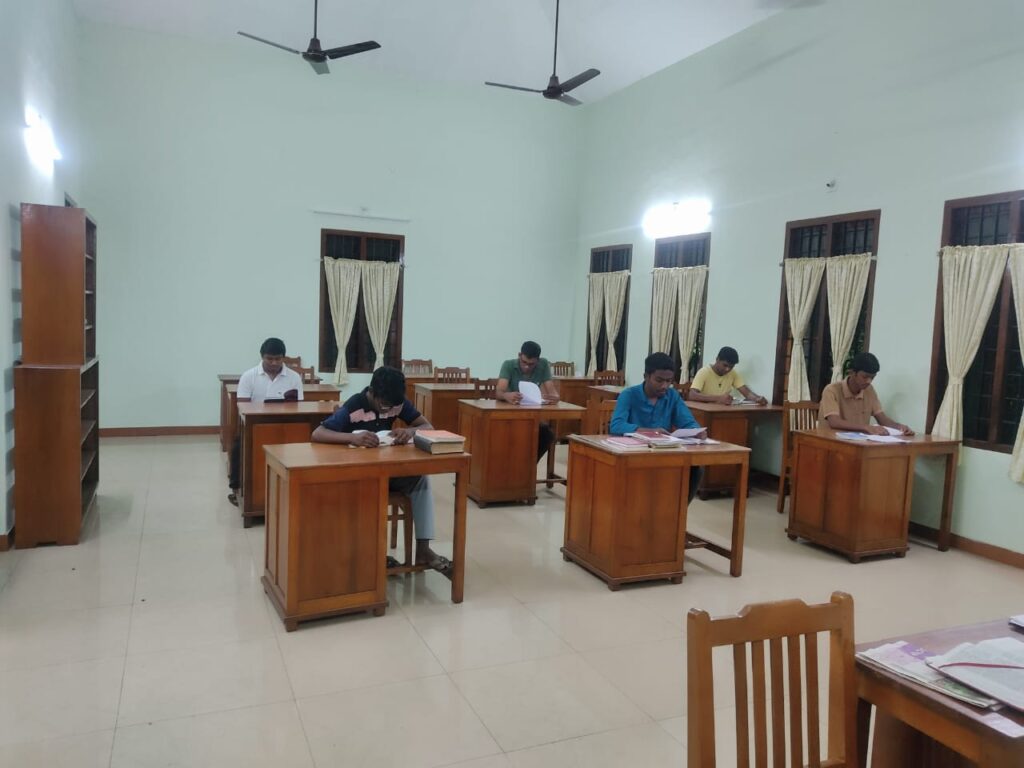
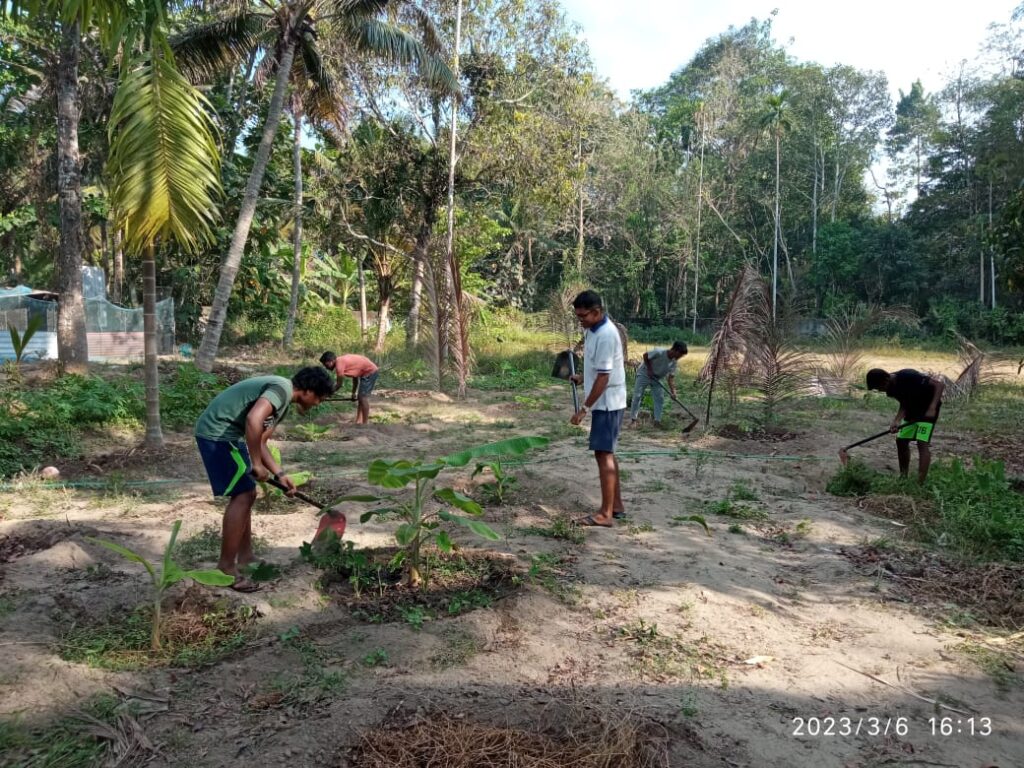
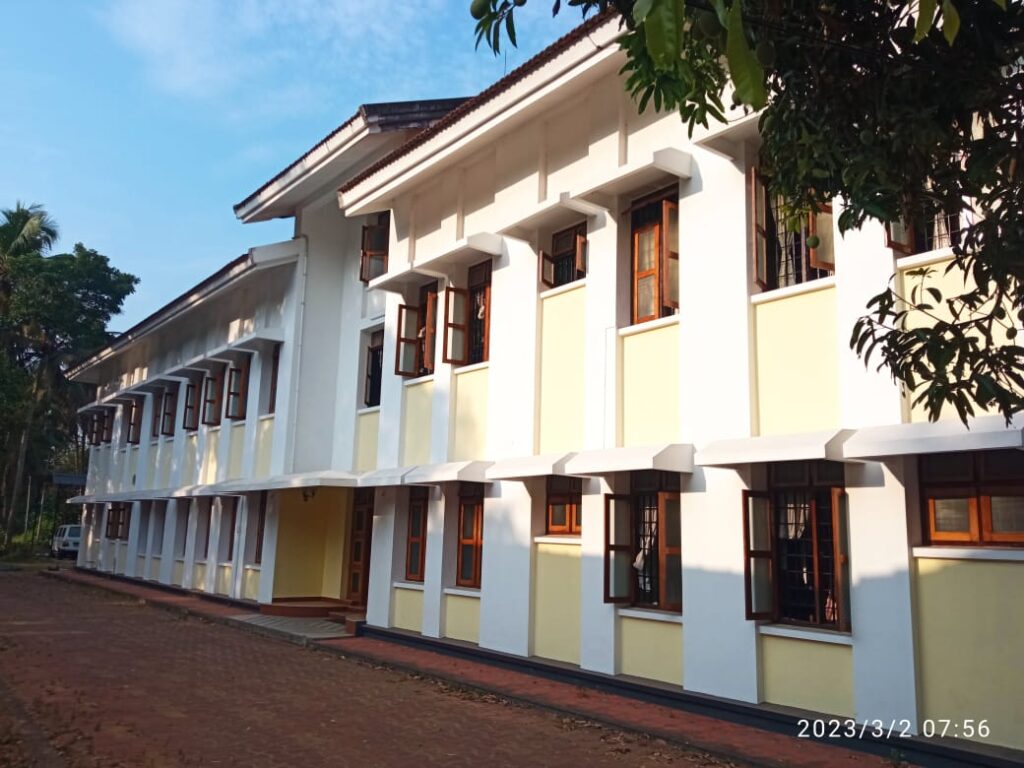
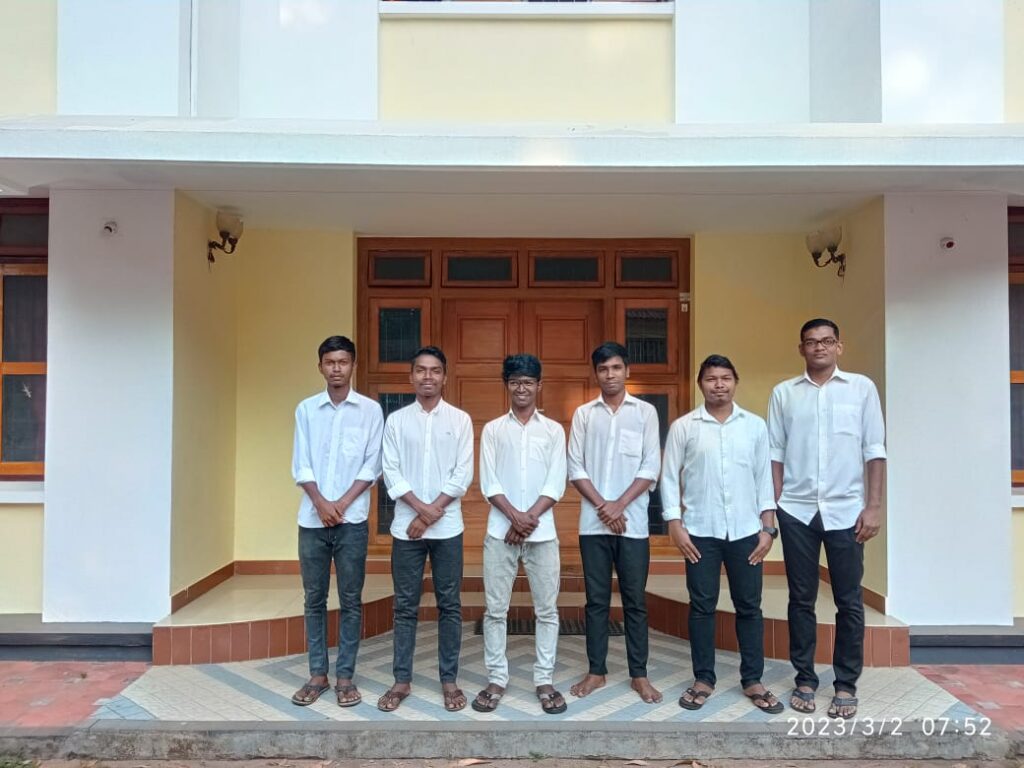
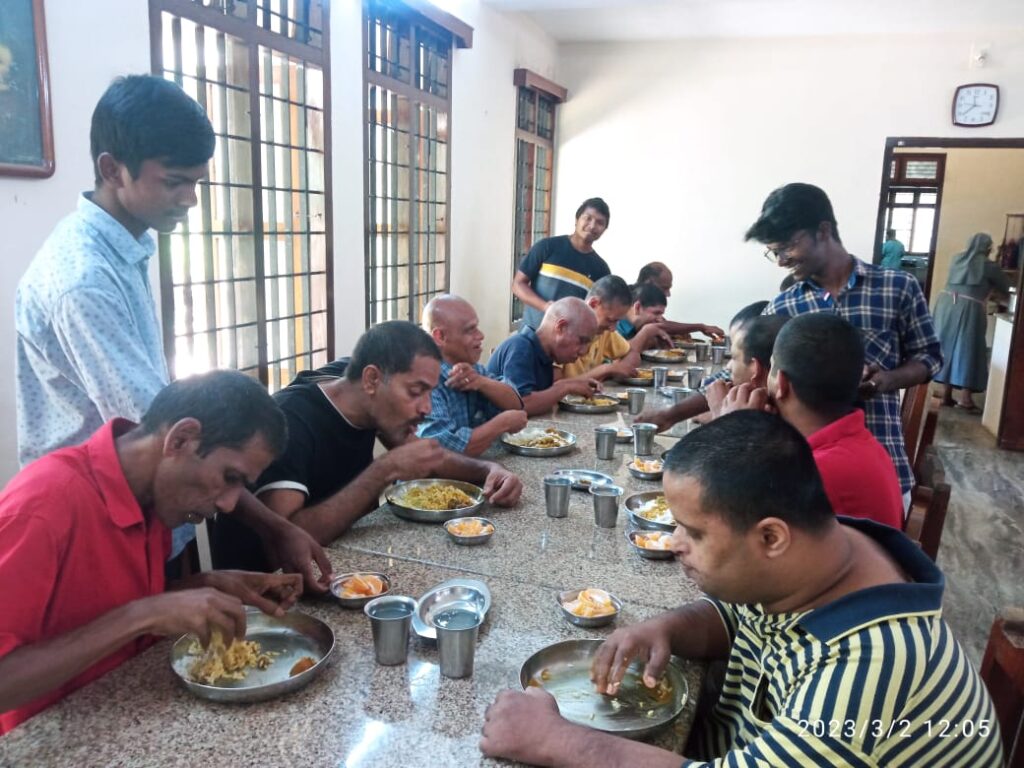
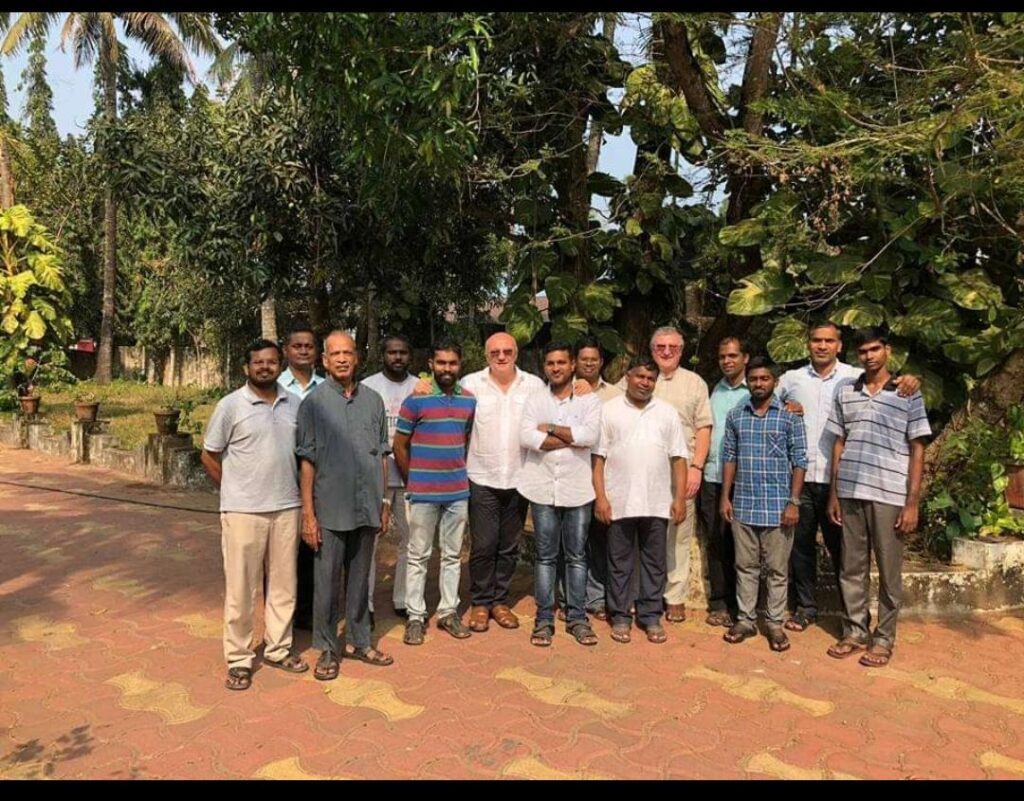
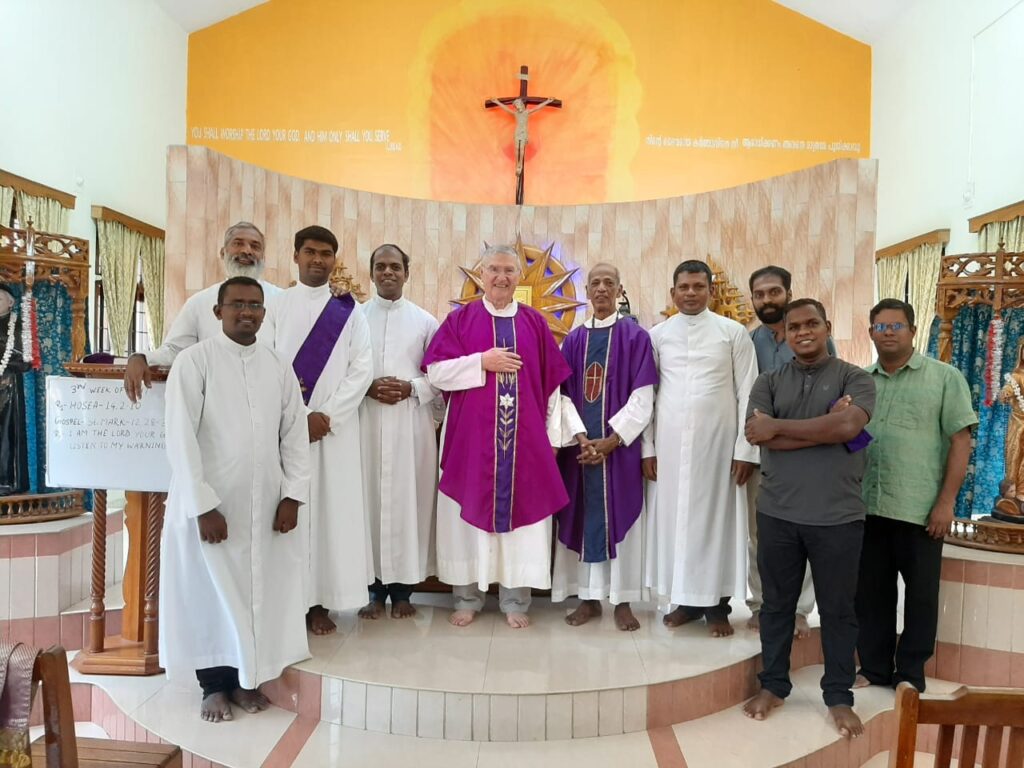
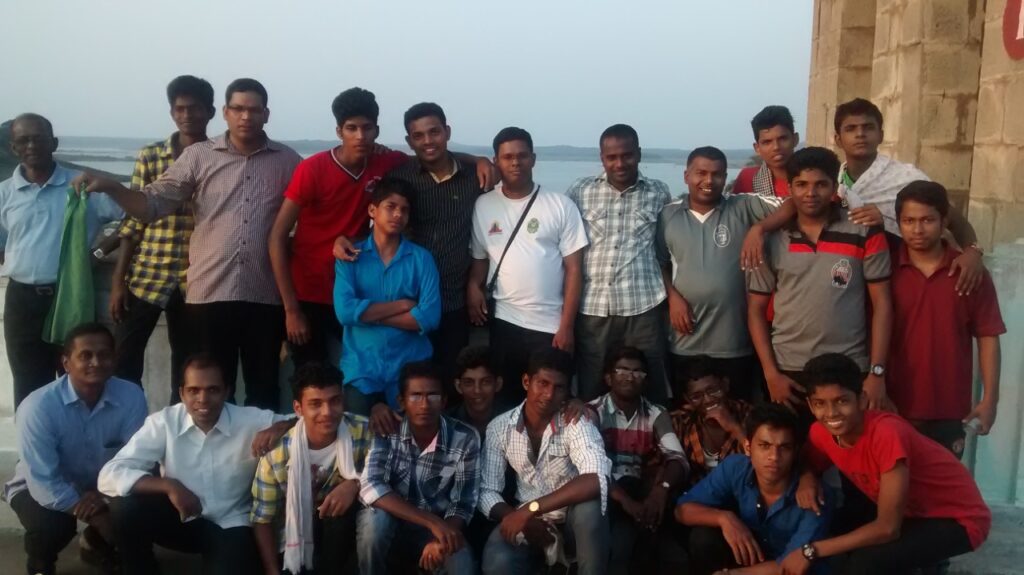
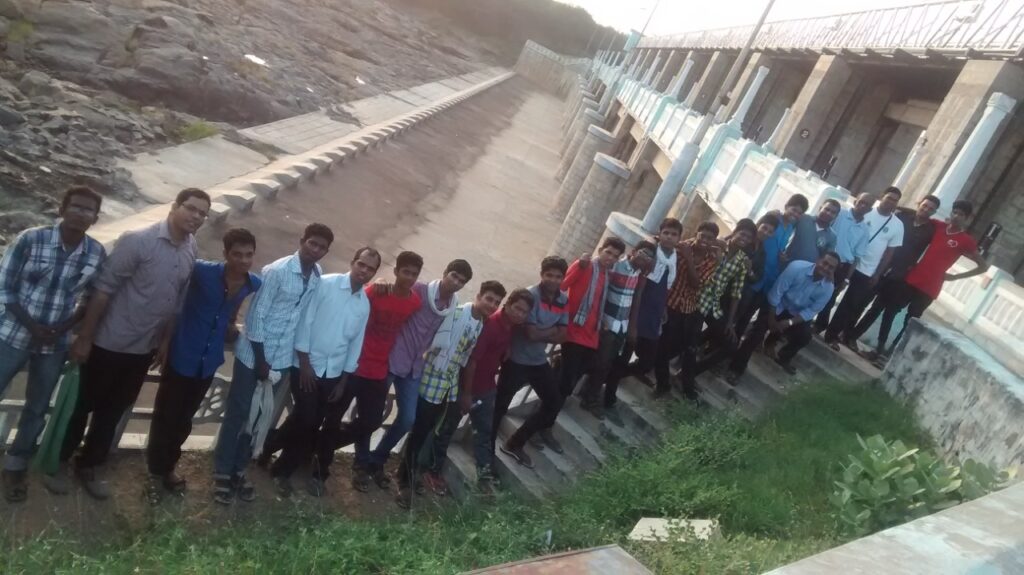
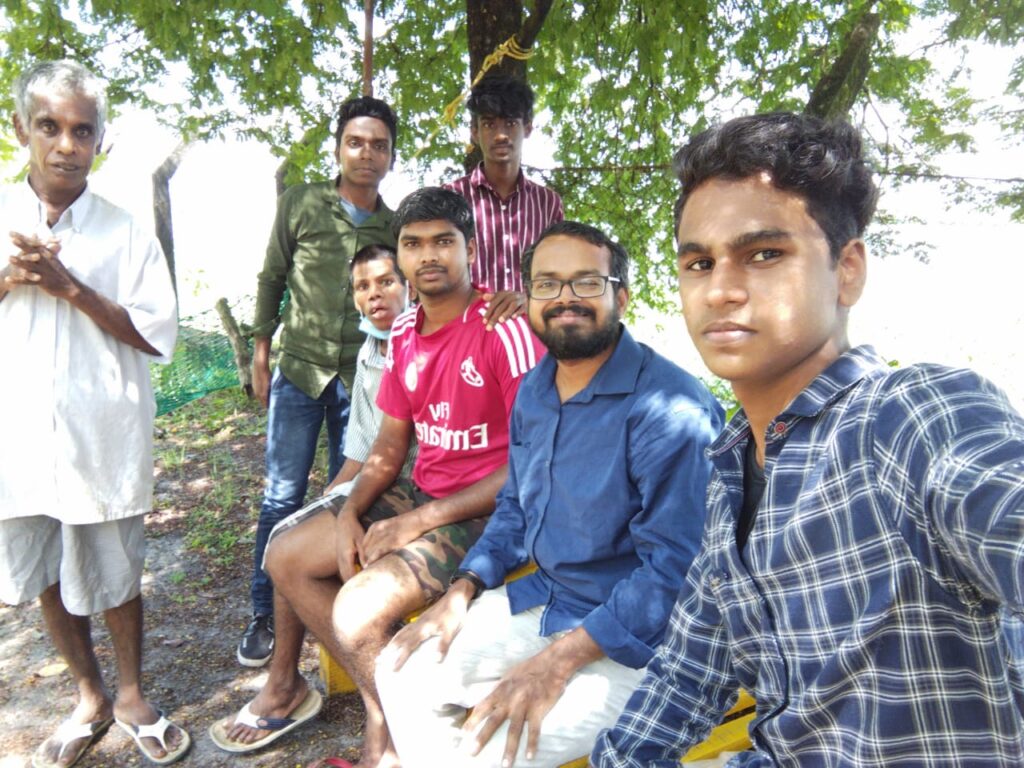
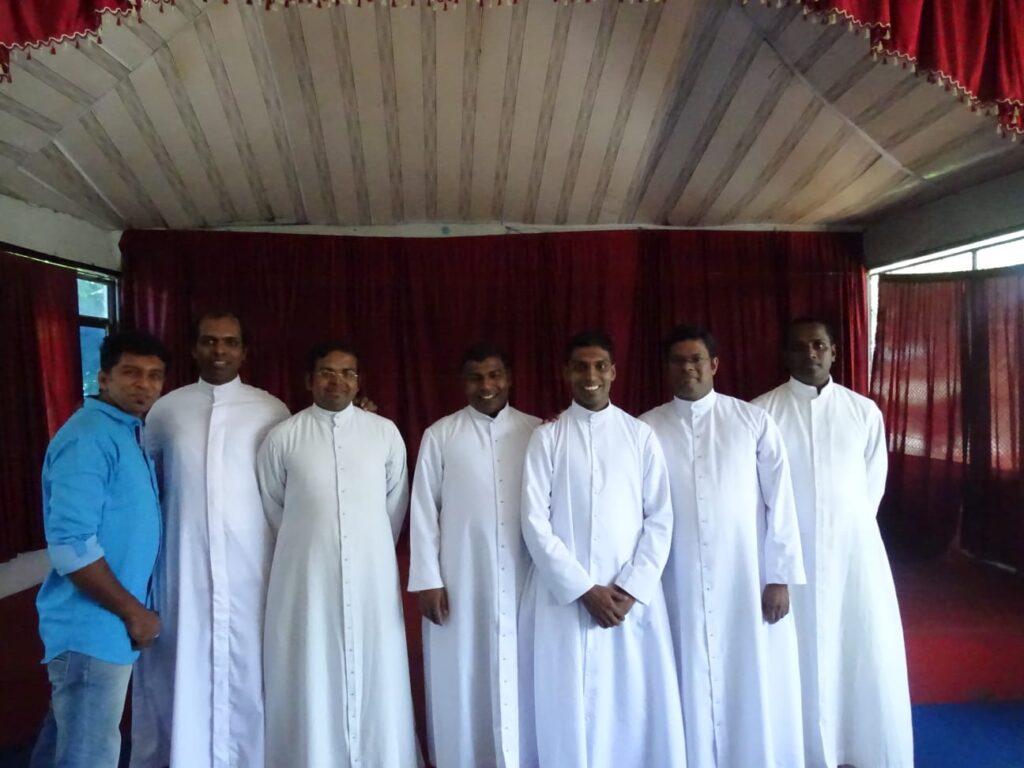
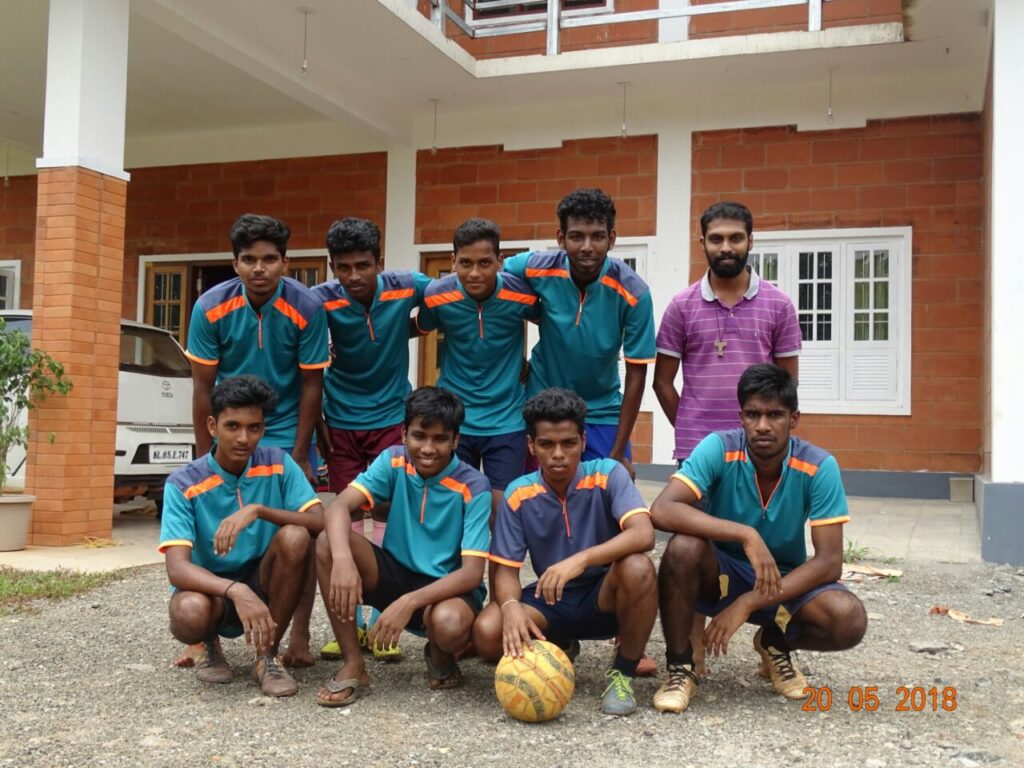
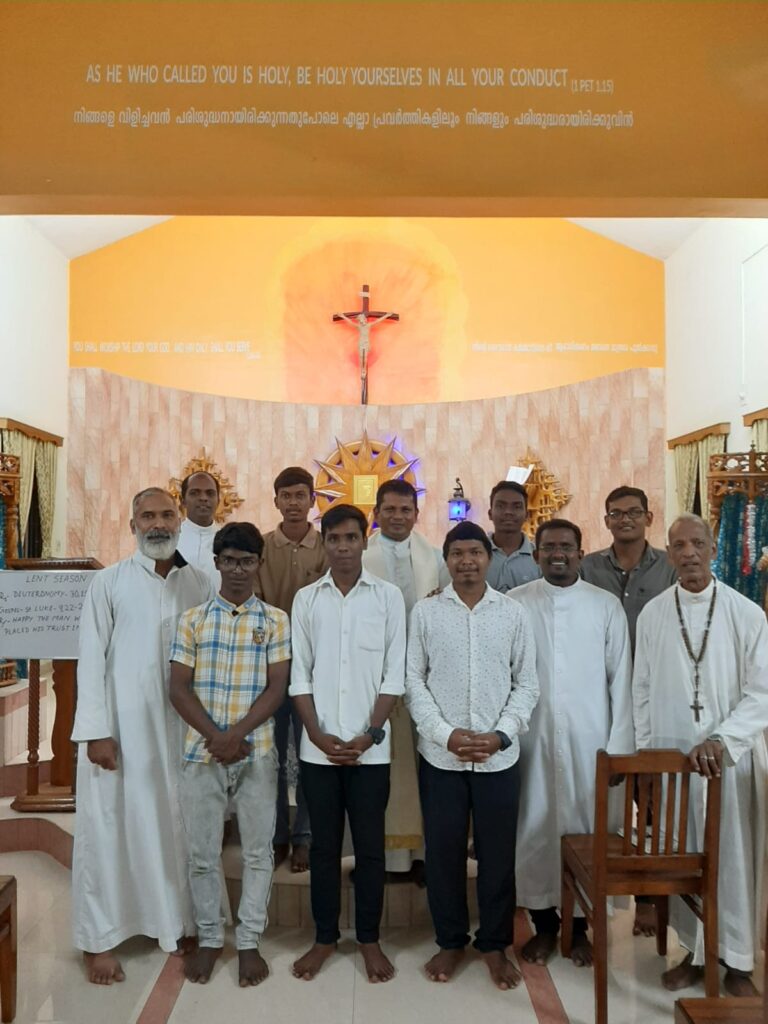
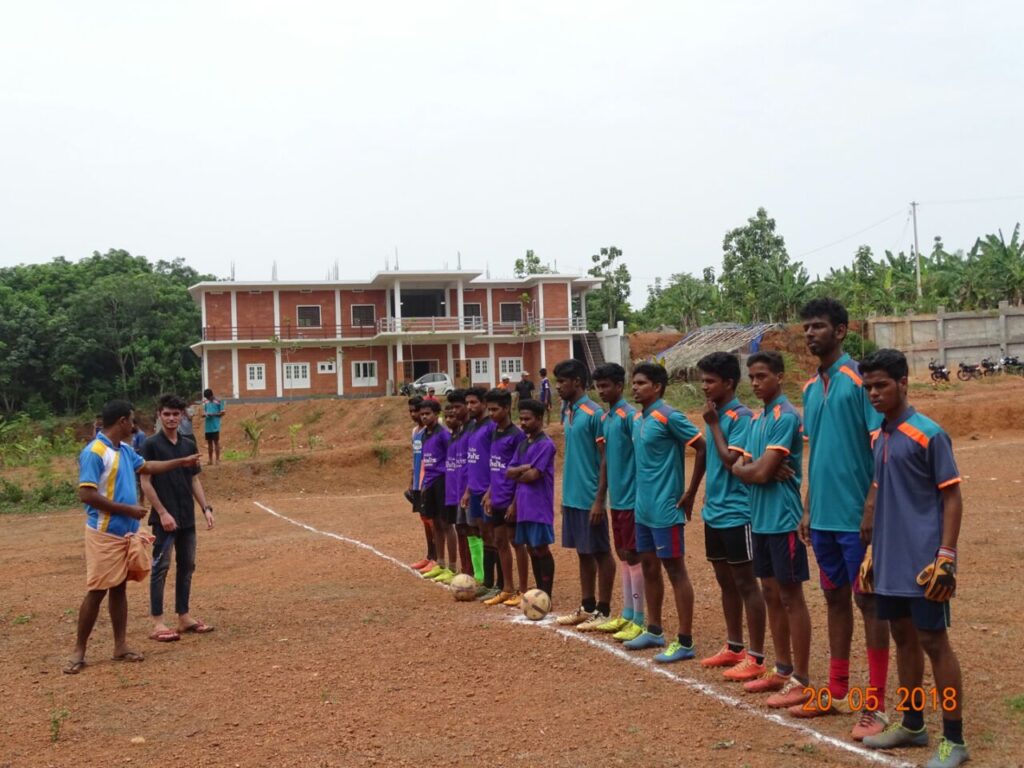
COTTOLENGO EDUCAITONAL AND CHARITABLE SOCIETY (CECS)
INTRODUCTION.
Cottolengo Educational and Charitable Society from its inception takes much care to provide a better lifestyle to the poor and downtrodden. The rich culture and wide human thinking helps much to keep an open mind without the barriers of colour, creed and religion. This is the difference one feels in the social welfare activities of CECS.
HISTORY
In October 1993 Fr. John Thattumkal and Fr. Joseph Kottungal came to live in North Paravur, in Ernakulum District, Kerala. The intention was to do something for the abandoned people, those without any help from anyone. They got a few people of good will to join them and started their plan. They took St. Joseph Cottolengo (1786-1842) as their model and patron an Italian Saint who spent his life doing similar work for unfortunate and differently abled people.
REGISTRATION.
On 18th December 1996 it was registered as “Cottolengo Educational and Charitable Societies” (CECS)Reg. No. ER.663/96 under the Travancore Cochin Literary, Society and Charitable Societies Registration Act of 1955.
THE OBJECTIVE OF THE SOCIETY:
- To run, aid or establish educational or training institutions or to promote and to collaborate with any educational institution.
- To arrange and provide boarding, food, medicine and necessities for the needy persons, that is otherwise incapable due to old assistance age, mental or physical handicap, or social and financial condition, irrespective of any discrimination.
- To accept gifts, donations, testamentary dispositions from the public, and to accept subscriptions from the, members for the fulfilment of the aims of the society.
- To acquire by purchase, gifts or otherwise movable and immovable properties and to construct, repair, equip and furnish buildings and structures, and to lease out, exchange or sell or otherwise dispose of such assets which will be deemed necessary.
- To promote and give institutions on philosophical, theological, spiritual and religious matters.
- To undertake, establish, aid or take over any religious or charitable institution, endowment, church etc
- To construct, maintain, found libraries, reading rooms for the use of the general public.
- To publish and promote book, and periodicals in accordance with the aims of the society.
- To co-operate with society or trust having similar objectives.
Cottolengo Vocational Rehabilitation Centre.
Cottolengo Vocational Training Centre is an innovative initiative by Cottolengo Educational and Charitable Society for differently abled children. Cottolengo Vocational Centre was inaugurated on 17th January 2010 by the Vice General of Cottolengo Priests Very Rev. Dr. Roberto Provera. It was blessed by Rev. Msgr. Dominic Pinherio. On this occasion, Cottolengo Website was inaugurated by Sri K.P. Dhanapalan M.P. Education fund was inaugurated by Satheesan M.L.A. Cottolengo publications was inaugurated by Rev. Dr. Roberto Provera. The first book was released by Rev. Dr. Chacko Puthenpurackal. The first sale of the products made by differently abled was done by Rev. Fr. Adriano Giampiero. The Magazine releasing of Cottolengo Vocational Training Centre was done by Smt. Valsala Prasanna Kumar, Chairperson of Paravur Municipality.
Cottolengo Vocational Training Centre is a prestigious centre of Cottolengo Educational and Charitable Society (CECS) functioning for the empowerment of the disabled section of the society. The centre through training, education and research intends to promote the cardinal points of sustainable development in the area of disability and management. The centre has a multidisciplinary team of scholars, psychologists, special educators and social workers working together to meet the objectives of the centre. The activities of the centre are training persons with disabilities, development of holistic approach for the total rehabilitation of the disabled, training persons with disabilities, reach their potential and overcome the barriers of the mainstreaming. We achieve through collaborative teams, by empowering families and by building resources and participating in advocacy. Cottolengo Vocational centre offers a variety of therapeutic and support services to persons with disabilities and their families including: Assessment and occupational therapy, vocational training, family education and counselling, psychological services, home visits and parent support groups, social work services.
Conclusion.
Our hearts overflow with joy and praise towards who hovers and watches our pilgrimage of trust and love. We work for the building of new humanity, based on love, fraternity and hope.
